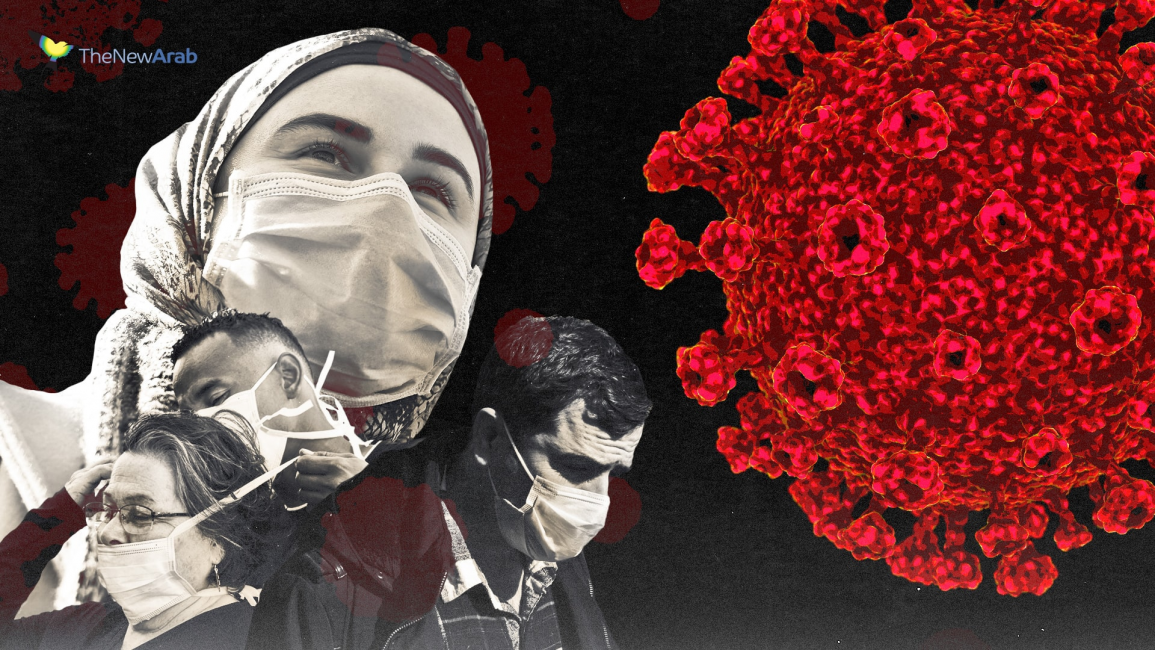The Middle East at war with coronavirus: Top stories from 20 April
Jordan's King Abdullah II said that the kingdom will send medical equipment and doctors to the US in the coming weeks, to help Washington battle the novel coronavirus.
In an interview with CBS News' "Face the Nation" programme aired on Sunday, the Jordanian monarch called for solidarity and sharing between nations, regardless of their previous political differences.
"Do we understand that this is a new world that we're living in?" the king asked. "[Covid-19 is] an invisible enemy... Unless we work together, we will not be able to overcome this.
"So our enemies of yesterday or those that were not friendly countries yesterday, whether we like it or not, are our partners today," he said.
Meanwhile, Jordan partially lifted a nationwide lockdown - one of the strictest in the world - in three governorates.
The Tafilah, Karak and Maan governorates, which have no recorded cases of the virus, will allow its residents to move freely between 10am (7am GMT) and 6pm (3pm GMT).
|
|
The governorates will be closed to outside visitors, while universities, schools, mosques, churches, and fitness centres will remain shut.
2) Syrian Kurds set up first coronavirus hospital
Syria's Kurds have set up a specialised hospital for coronavirus cases, the Kurdish Red Crescent said Monday, after the first Covid-19 death was reported in the northeastern region.
The United Nations on Friday said a man in his fifties had on 2 April become the first fatality from COVID-19 in northeastern Syria.
In a region suffering from a lack of medical supplies, the news further raised fears of a breakout, particularly in its overcrowded camps for the displaced.
Kurdish Red Crescent co-director Sherwan Bery said a new 120-bed facility was now ready to welcome any moderate cases of the virus in an area around 10 kilometres (six miles) from the city of Hassakeh.
3) Iran and Syria delegation meet with 'mask diplomacy'
Iran's Foreign Minister Mohammed Javad Zarif flew to Damascus on Monday for talks with Syria's President Bashar Al-Assad, after a surprise announcement of the meeting by Tehran a day earlier.
With a break from usual diplomatic protocol, Assad and Zarif sat at a distance both wearing masks due to the coronavirus epidemic.
Syrian state news reported that Zarif condemned the refusal of the US to lift sanctions on Iran and Syria during the coronavirus outbreak, judging it as "inhumane".
Iran has been out of the hardest hit countries in the world by the coronavirus epidemic, while Syria is also vulnerable to an outbreak from the deadly disease.
4) US oil prices nosedive due to coronavirus epidemic
US crude crashed below the $11 mark on Monday, as demand for oil is hit by coronavirus lockdowns.
WTI crude slumped by 21 percent with prices on Sunday evening reaching their lowest in 21-years at $14.47 a barrel as cheap oil continues to flood the market. Later on Monday it fell further, dipping below the $11 mark.
The slump comes despite a massive cut in output by OPEC and other major producers in a bid to rescue crashing prices.
|
|
Production cuts have been off-set by a huge drop in demand due to the lockdowns imposed on over half the world's population due to the coronavirus epidemic.
The price war between Saudi Arabia and Russia also so the market flooded with cheap oil and storage at capacity.
5) UNICEF appeals for more aid for children in Middle East amid coronavirus pandemic
The UN children's agency appealed on Monday for an additional $92.4 million to help fight the coronavirus pandemic in the Middle East and North Africa, a conflict-battered region with the highest number of children in need anywhere.
Yemen is a top concern, said Ted Chaiban, the regional chief of UNICEF. After five years of civil war, half the health centres in Yemen no longer operate, while 2 million children are malnourished, including 400,000 who suffer from severe acute malnutrition.
"If you don't get support to them every month, you have a 50 percent increase in the mortality rate among those children (with severe malnutrition)," Chaiban told The Associated Press.
"It was already critical to address the needs of children in Yemen. With Covid-19, now you've got this extra lawyer of vulnerability."



